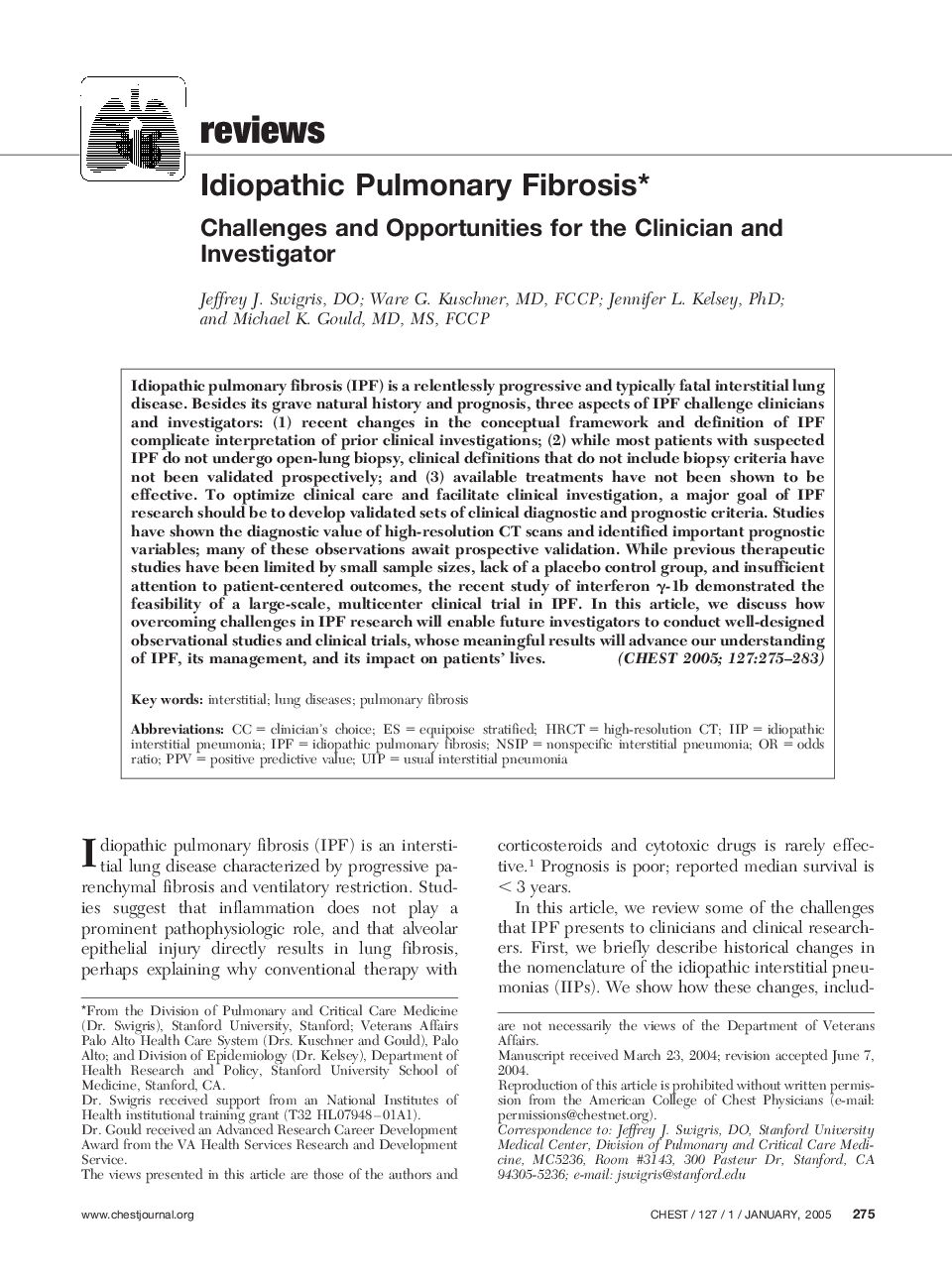| Article ID | Journal | Published Year | Pages | File Type |
|---|---|---|---|---|
| 9164614 | Chest | 2005 | 9 Pages |
Abstract
Idiopathic pulmonary fibrosis (IPF) is a relentlessly progressive and typically fatal interstitial lung disease. Besides its grave natural history and prognosis, three aspects of IPF challenge clinicians and investigators: (1) recent changes in the conceptual framework and definition of IPF complicate interpretation of prior clinical investigations; (2) while most patients with suspected IPF do not undergo open-lung biopsy, clinical definitions that do not include biopsy criteria have not been validated prospectively; and (3) available treatments have not been shown to be effective. To optimize clinical care and facilitate clinical investigation, a major goal of IPF research should be to develop validated sets of clinical diagnostic and prognostic criteria. Studies have shown the diagnostic value of high-resolution CT scans and identified important prognostic variables; many of these observations await prospective validation. While previous therapeutic studies have been limited by small sample sizes, lack of a placebo control group, and insufficient attention to patient-centered outcomes, the recent study of interferon γ-1b demonstrated the feasibility of a large-scale, multicenter clinical trial in IPF. In this article, we discuss how overcoming challenges in IPF research will enable future investigators to conduct well-designed observational studies and clinical trials, whose meaningful results will advance our understanding of IPF, its management, and its impact on patients' lives.
Keywords
Related Topics
Health Sciences
Medicine and Dentistry
Cardiology and Cardiovascular Medicine
Authors
Swigris DO, Kuschner MD, FCCP, Kelsey PhD, Gould MD, MS, FCCP,
